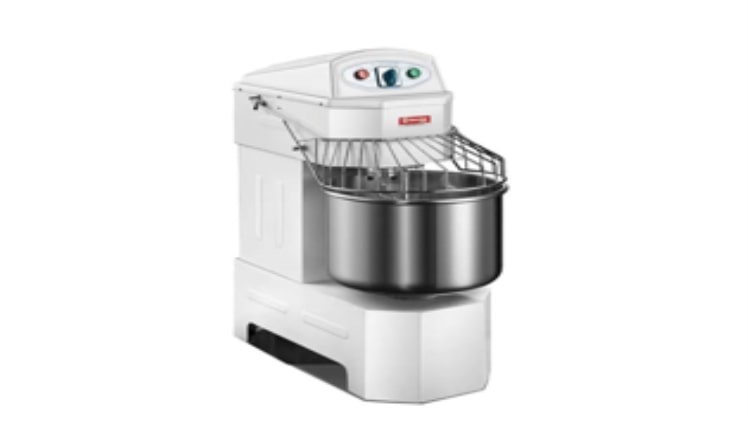I can’t imagine what people went through when manually mixing dough for baking purposes. Technology is responsible for the introduction of new modernized appliances such as dough mixers. This mixer is used either at home or at the workplace to combine dough components.
What is a dough mixer?
A dough mixer is a tool that can be used both at home and at work. It is used to stir large quantities of dough. It’s electric, with timers and numerous controls to meet the needs of the user.
There are numerous mixer types needed for various types of jobs. Whether you’re a bakery owner who combines hundreds of pounds of dough each day or a restaurant owner who simply needs modest quantities of dough once or twice a week for a dinner special, this article aids you in selecting the best mixer. Some of the considerable factors include,
Speed of the mixer
Consider whether the mixer allows you to alter speeds while it’s running. Some models allow you to make changes on the fly, which can help you work more efficiently. Other mixers are built to endure the mechanical pressures of on-the-fly speed changes, so you’ll have to switch it off first. This helps to avoid internal damage and ensures the safety of the end-user.
Horsepower
Because they’re mixing more material at once, larger mixers have higher horsepower motors than smaller models. They’re also better suited to handling the thicker, stiffer dough, which requires more power to mix than lighter mixtures. Therefore, it is important to take note of the power of the mixer.
The purpose of the mixer
Different types of dough have different consistencies. Not every mixer is suitable for every task.
Finding the absorption ratio for some of your most frequently used doughs is a good way to figure out what types of mixers will best suit your needs; the lower the absorption rate, the more difficult the dough will be to mix, and the more powerful your unit will be.
Price
When it comes to pricing, different factors are taken into consideration. For instance, the type of the mixer, whether a stand or hand mixer, the size (large or small), horsepower, and other factors affect the dough mixer price in Kenya. Usually, the best dough mixers are more expensive than others.
Size
Physical size is one of the first things to consider when buying a mixer. For a kitchen that mixes largely small batches of lower-weight ingredients, a mixer that is too large may be an unnecessary investment. However, buying a mixer that is too small to fit your kitchen’s needs can compromise the machine’s long-term reliability.
A common blunder is purchasing the incorrect mixer size. People either buy one that is too small for the work, which is difficult on the mixer, or they buy one that is too large, which is a waste of money. Therefore, consider all factors before deciding on what size to buy.
Weight
What is the weight of your mixer in kilograms? Because you will be forced to hold the hand mixer throughout the mixing process, I would recommend using lightweight versions. Choose a sturdy stand mixer instead. The reason for this is that heavier versions are more stable, so you won’t have to worry about them bouncing around on the counter while you’re using them.
Conclusion
Before selecting a dough mixer, make sure to consider each of these factors for the best value. At the same time, make sure you choose a model that is easy to clean and creates a level of noise that is acceptable for everyone’s comfort.

